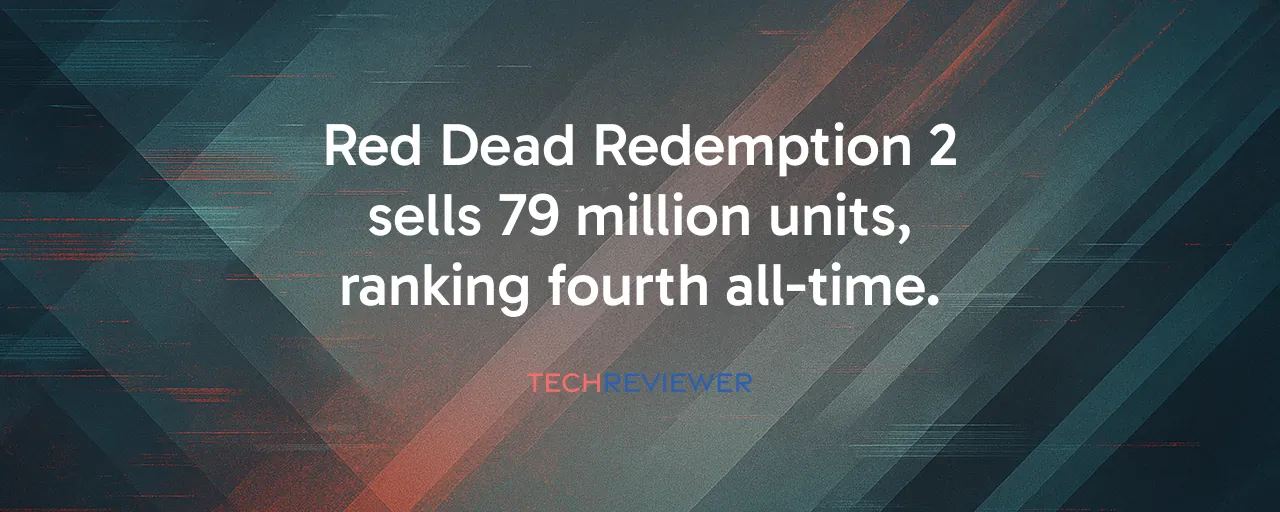A Milestone That Shakes the Gaming World
Red Dead Redemption 2 just hit a jaw-dropping 79 million units sold, nudging out Mario Kart 8 to claim the fourth spot on the all-time best-selling games list. Rockstar Games, already a titan with Grand Theft Auto 5's 220 million units, now boasts two of the top four titles, trailing only Minecraft and Wii Sports. This milestone, announced during Take-Two Interactive's earnings call on November 6, 2025, underscores a rare feat: a story-driven, single-player epic thriving in an era dominated by multiplayer and casual games.
What makes this achievement stand out? It's more than just sales figures. Red Dead Redemption 2, with its sprawling open world and meticulous detail, represents the pinnacle of AAA game development. The game sold an extra two million copies in the latest quarter alone, seven years after its 2018 launch. That kind of staying power is almost unheard of, especially for a title that demands such a hefty investment of time and money from both developers and players.
Crafting a Living World With Unmatched Detail
Rockstar's ambition with Red Dead Redemption 2 set a new bar for what games can achieve. The game's proprietary RAGE engine powers a world where NPCs follow daily routines, wildlife hunts in realistic patterns, and weather shifts affect gameplay. Ever notice how horses react to cold weather with startling realism? That's the kind of granular detail that took eight years and 1,600 developers to perfect. Motion capture brought thousands of dialogue lines to life, while physics systems made every gunshot and gallop feel authentic.
This technical wizardry paid off. The game won multiple awards for its immersive design and still draws players with its slow-burn narrative about Arthur Morgan, a morally torn outlaw facing the end of the Wild West. Unlike fast-paced shooters, Red Dead invites players to savor its world, from dusty trails to bustling towns like Saint Denis, which was reworked entirely after a naming conflict with another game's city.
The High Stakes of Blockbuster Budgets
Red Dead Redemption 2's success came at a steep cost, with a budget estimated between $370 million and $540 million, including marketing. That's among the priciest games ever made, dwarfing the $130-$150 million spent on its predecessor, Red Dead Redemption. Take-Two's gamble paid off, with the company reporting adjusted earnings of $1.46 per share in its fiscal second quarter, well above the expected 94 cents. But the eight-year development cycle and reports of grueling crunch periods sparked industry-wide debates about whether such massive projects are sustainable.
Compare this to The Witcher 3: Wild Hunt, which sold 60 million copies with a significantly smaller budget. CD Projekt Red focused on a tight narrative and iterative design, avoiding the scope creep that plagued Red Dead's production. While both games prove single-player epics can endure, The Witcher 3 shows smaller budgets can still deliver massive impact. Red Dead's lavish spending, meanwhile, relied on Rockstar's proven track record and Take-Two's deep pockets, a luxury most studios can't afford.
Navigating a Shifting Industry Landscape
The gaming market is evolving fast, with digital sales now making up 95% of purchases, enabling long-tail success like Red Dead's. The global gaming industry hit $187.7 billion in 2024 and is projected to reach $205 billion by 2026. Yet, AAA budgets are ballooning, with top-tier PlayStation 5 games costing up to $400 million. Industry veterans like former PlayStation executive Shawn Layden warn that this 'cathedral business' model, where only giants like Rockstar can compete, risks stifling innovation.
Players, however, still crave experiences like Red Dead Redemption 2. Its focus on narrative depth over arcade action contrasts with multiplayer giants like PUBG, which shifted to free-to-play after 75 million sales. Red Dead Online, included free with the game, hasn't matched GTA Online's popularity, averaging just 1,900 concurrent Steam players recently. Still, its single-player campaign keeps drawing fans, proving there's room for both models in a crowded market.
Lessons From a Record-Breaking Run
Red Dead Redemption 2's climb to 79 million sales offers two big takeaways. First, players will pay for quality, even at a premium $60-$70 price point, if the experience feels truly groundbreaking. The Witcher 3's sales spiked 500% after its Netflix series, showing how cross-media exposure can extend a game's life. Second, the industry needs better ways to manage runaway costs. Rockstar's crunch culture, with some developers enduring 100-hour weeks, led to reforms for GTA 6's development, which was delayed to November 19, 2026 to prioritize worker well-being.
Looking ahead, the gaming world faces a split: massive AAA titles from a few big players and nimble indie games serving niche audiences. Red Dead's success shows what's possible when ambition meets execution, but it also highlights the risks of betting everything on one title. As costs climb and players demand more, studios must find a balance between creating epic experiences and keeping development sustainable for both creators and fans.
